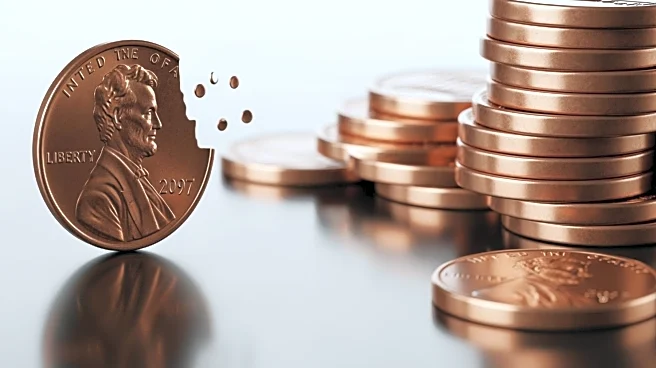What's Happening?
Retailers across the U.S. are experiencing penny shortages following the Treasury Department's decision to cease penny production. The move was initiated by President Trump due to the high cost of manufacturing
the coins. As a result, stores like Kroger and Home Depot are struggling to provide exact change, prompting some to round transactions to the nearest nickel. This shortage is affecting cash transactions and could impact operations during the busy shopping season.
Why It's Important?
The penny shortage has significant implications for retailers and consumers, particularly affecting cash transactions. It highlights the challenges of transitioning away from physical currency and the need for legislative solutions to address rounding issues. The shortage could disproportionately impact low-income individuals who rely on cash transactions, as well as businesses that serve them. The situation underscores the broader shift towards digital payments and the potential consequences of phasing out physical currency.
What's Next?
Retail industry groups are advocating for federal legislation to allow rounding transactions to the nearest nickel, addressing legal barriers in several states. The outcome of these efforts could set a precedent for future currency transitions. Additionally, retailers may need to adapt their operations to accommodate the shortage, potentially accelerating the shift towards digital payment systems.
Beyond the Headlines
The penny shortage raises ethical and operational questions about the impact on low-income communities and the businesses that serve them. It also reflects broader economic trends, such as the decline of cash usage and the rise of digital transactions, which could reshape consumer behavior and retail strategies.










